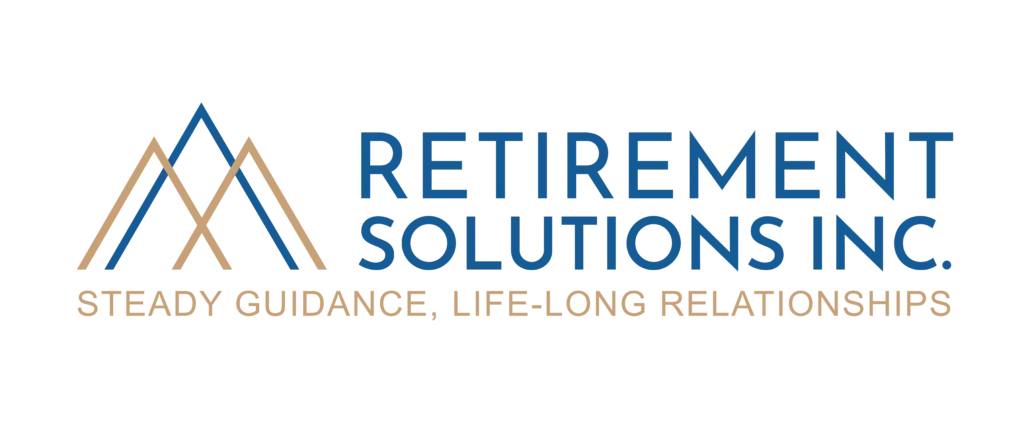MAXIMIZE YOUR RETIREMENT
Expert Guidance from San Diego's Best Succession Planning Team
Navigating Retirement:
The Complex Challenges of Selling Your Manufacturing or Construction Business
There are several challenges that can arise when using the sale of a manufacturing or construction business as a plan to retire, including:
Finding the right buyer: Finding a suitable buyer who can afford to purchase the business at a fair price and who has the necessary experience and skills to run the business can be challenging.
Timing the sale: Knowing when to sell the business can be difficult. Waiting too long to sell can result in a decline in the value of the business, while selling too early may mean missing out on potential growth opportunities.
Valuing the business: Determining the fair market value of a manufacturing or construction business can be complicated. It requires a comprehensive analysis of the business's financial statements, assets, liabilities, and market conditions.
Managing taxes and fees: Selling a business can trigger various taxes and fees, including capital gains taxes, income taxes, and transaction fees. Managing these costs can be complex and requires careful planning.
Creating a retirement income stream: After the sale of the business, retirees must create a sustainable income stream to fund their retirement. This can be challenging, especially if they have not planned ahead and do not have other sources of retirement income.
Overall, selling a manufacturing or construction business can be a complex process, and retirees must navigate a range of challenges to secure a successful retirement.
Transform Your Business Sale into a Strategic Retirement Plan
Work with Our Financial Planners to Sell Your Business and Plan for the Future
A financial planner who is an expert at helping a business owner use the sale of their business as a vehicle to fund their retirement typically possesses a combination of skills, experience, and knowledge that enables them to provide comprehensive and strategic advice.
Here are a few key factors that can make a financial planner an expert in this area:
Business expertise:
An expert financial planner should have a deep understanding of the business sale process, including business valuation, preparing the business for sale, finding and negotiating with potential buyers, and the tax implications of a sale.
Retirement planning knowledge:
A financial planner should also be well-versed in retirement planning and understand the unique challenges of funding a retirement from the proceeds of a business sale, such as creating a sustainable income stream and managing investment risk.
Experience with complex financial strategies:
The expert planner should have experience with complex financial strategies, such as tax planning, estate planning, and asset protection, to help ensure that the business owner's retirement plan is comprehensive and effective.
Communication skills:
A skilled financial planner should be able to communicate complex financial concepts in an accessible way, listen actively to the business owner's goals and concerns, and work collaboratively with other professionals, such as lawyers and accountants, to ensure a coordinated approach to the sale and retirement planning process.
Overall, a financial planner who is an expert in helping business owners use the sale of their business as a vehicle to fund their retirement should possess a unique combination of skills, knowledge, and experience, and be able to provide personalized and strategic advice to help business owners achieve their retirement goals.
From Sale to Retirement
A Comprehensive Guide
Planning for retirement can be a daunting task, but it is a critical step towards achieving financial security and peace of mind in your golden years. The good news is that it's never too early or too late to start planning. With a few key steps, you can craft an ideal retirement that meets your unique goals and needs.


CHOOSING A BENEFITS PACKAGE THAT SERVES YOUR BUSINESS AND EMPLOYEES
As a business owner, you worked hard to grow your business. Securing your future doesn’t end with growing your customer base and getting sales. You must also provide financial security for your employees.
Along with wages, a small business owner’s financial responsibility includes offering a benefits package. Yet choosing a benefits package that best serves your employees without negatively impacting future growth and financial stability may seem challenging. What should your benefits package include? How much should you spend? Here are a few things to consider during the vendor selection process.
REQUIRED BENEFITS IN YOUR STATE
In addition to federally required Medicare and Social Security, unemployment insurance, and worker’s compensation, your business might also need to offer family and medical leave, as well as health insurance. Other benefits typically include health, life, and disability insurance, plus some form of retirement savings. Before you start comparing different benefits packages, learn which benefits are required by your state, as well as specifics about what’s needed in each area.
BENEFITS TO ATTRACT EMPLOYEES
Selecting the right employee benefits package involves more than just meeting the federal and state requirements, it can also be a recruiting tool to attract your ideal employee. Think about what matters most to the employees you want working for your business and select a package that includes tools to protect those things. For example, is your ideal employee health conscious? If so, include health and wellness, dietary, or fitness program options in your plan. Paid days off for volunteer work or a matching charitable contribution program may appeal to community-oriented individuals. Employees who value family time might like the idea of flex days or additional family or medical leave days. In short: Consider what your ideal employee looks like and how you can meet their needs with certain benefits.
BENEFITS THAT RETAIN EMPLOYEES
Some benefits can also help you retain employees. When selecting retirement savings vehicles, work with a professional that can help you consider appropriate options, including eligibility requirements, vesting schedules, or alternative compensation, such as equity or stock options.
BENEFITS THAT ALIGN WITH YOUR BUSINESS
Another thing to consider when reviewing items in employee benefits packages is how well they align with the values and mission statement of your business. How do they reflect on your company? Don’t be afraid to get creative. For example, offer pet insurance for employees at a veterinarian clinic, include a healthy meal delivery service for employees at a gym or fitness business, or offer a combination of professional development/tuition reimbursements and a tool allowance for skilled tradespeople.
TAX AND FINANCIAL IMPLICATIONS
When it comes to selecting the right benefits package, you need to consider the financial implications. Not just for the business, but also for your staff. Some questions to ask yourself include: • How much does this program cost to roll out?
• Which of these benefits are taxable to the employee and/or the business?
• Which of these benefits offer a tax break to the employee and/or the business?
Small businesses have long been the backbone of American society. Offering a customized employee benefits plan to employees supports the individuals, families, and communities of our country.
If you have questions, a financial professional can help you learn more about what to look for in a benefits plan.

Contact Us:
Phone: 760-603-0700
5857 Owens Avenue, Suite 110, Carlsbad CA 92008
https://2rsi.com/
chelberg@2rsi.com
Links:
DISCLAIMER:
The content is developed from sources believed to be providing accurate information. The information in this material is not intended as tax or legal advice. Please consult legal or tax professionals for specific information regarding your individual situation. The opinions expressed and material provided are for general information, and should not be considered a solicitation for the purchase or sale of any security.
We take protecting your data and privacy very seriously. Click the following link to learn more from the California Consumer Privacy Act (CCPA) Securities offered through SagePoint Financial, Inc. (SPF), member FINRA /SIPC.
Investment advisory services offered through The AmeriFlex® Group, an Independent Registered Investment Advisor. SPF is separately owned and other entities and/or marketing names, products or services referenced here are independent of SPF.
Insurance services are offered through Scott Chelberg as a licensed agent independent of SagePoint Financial. California Department of Insurance License #0694123.
Investment products and services from this representative(s) available only to residents of Arizona (AZ),California (CA),Colorado (CO),Florida (FL),Georgia (GA),Kentucky (KY),Massachusetts (MA),Michigan (MI),Minnesota (MN),North Carolina (NC),Nebraska (NE),New York (NY),Ohio (OH),Oregon (OR),Pennsylvania (PA),South Dakota (SD),Texas (TX),Virginia (VA),Washington (WA).

The three-step process provides a clear and actionable plan for construction business owners who want to retire.
Owners can take control of their retirement and ensure that they're able to enjoy their golden years.
Financial Security
Peace of Mind
Flexibility and Control
Evaluate your business and assets:
The first step is to take a look at your construction business and determine what it's worth. This will involve taking inventory of your assets, such as equipment, property, and inventory, and evaluating your financial statements. You may also want to consider hiring an accountant or financial advisor to help you with this process.
Plan for succession:
Once you have a clear understanding of your business's value, it's time to start planning for succession. This may involve grooming a family member or key employee to take over the business, or it may mean selling the business outright. If you plan to sell the business, you'll need to identify potential buyers and work with a broker or attorney to draft a sales agreement.
Develop a retirement plan:
Finally, you'll need to develop a plan for your retirement. This may include investing the proceeds from the sale of your business, purchasing an annuity, or setting up a retirement account. You may also want to work with a financial advisor to ensure that you're maximizing your retirement income and minimizing your tax liabilities.
By following these three steps, construction business owners can take control of their retirement
and ensure that they're able to enjoy the fruits of their labor for years to come.
DISCLAIMER:
The content is developed from sources believed to be providing accurate information. The information in this material is not intended as tax or legal advice. Please consult legal or tax professionals for specific information regarding your individual situation. The opinions expressed and material provided are for general information, and should not be considered a solicitation for the purchase or sale of any security.
We take protecting your data and privacy very seriously. Click the following link to learn more from the California Consumer Privacy Act (CCPA) Securities offered through SagePoint Financial, Inc. (SPF), member FINRA /S IPC.
Investment advisory services offered through The AmeriFlex® Group, an Independent Registered Investment Advisor. SPF is separately owned and other entities and/or marketing names, products or services referenced here are independent of SPF.
Insurance services are offered through Scott Chelberg as a licensed agent independent of SagePoint Financial. California Department of Insurance License #0694123.
Investment products and services from this representative(s) available only to residents of Arizona (AZ),California (CA),Colorado (CO),Florida (FL),Georgia (GA),Kentucky (KY),Massachusetts (MA),Michigan (MI),Minnesota (MN),North Carolina (NC),Nebraska (NE),New York (NY),Ohio (OH),Oregon (OR),Pennsylvania (PA),South Dakota (SD),Texas (TX),Virginia (VA),Washington (WA).
